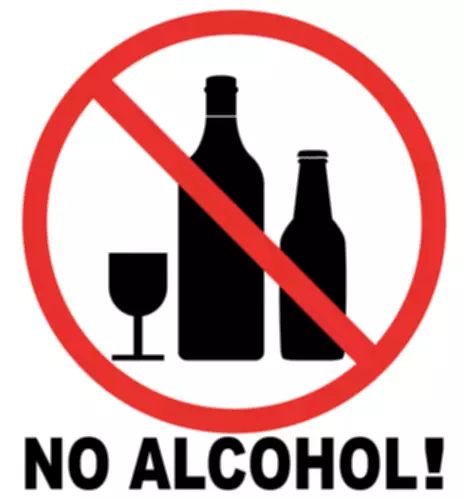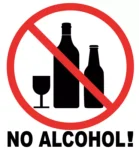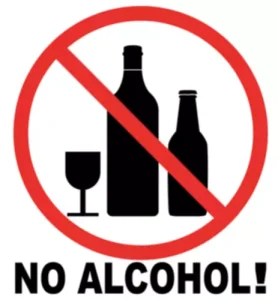The Dopamine System in Mediating Alcohol Effects in Humans SpringerLink

THE UAB Center for Addiction and Pain Prevention and Intervention (CAPPI) offers clinical resources for treating addiction and pain. Composed of multiple regions, the brain forms dynamic networks that are responsible for specific functions, such as attention, self-regulation, perception, language, reward, emotion and movement, along with many other functions. Clinical Pearl – Only 20% of patients may show the full triad in clinical practice. Genetic susceptibility linked to thiamine transporter genes may be involved in the development of WKS in vulnerable patients.
What Role Does Family Play In Recovery?
In this article, we’ll explore the intricate connection between alcohol and dopamine, from short-term effects on the brain’s reward system to the long-term consequences of addiction and dopamine deficiency. It starts to produce less of the chemical, reduce the number of dopamine receptors in the body and increase dopamine transporters, which ferry away the excess dopamine in the spaces between brain cells. Given the central role of dopamine in alcohol addiction, researchers are exploring potential treatments targeting the dopamine system for alcohol use disorders. Some approaches under investigation include medications that modulate dopamine function, such as dopamine receptor agonists or antagonists. Other strategies focus on enhancing natural dopamine production through lifestyle changes, including exercise, nutrition, and stress management techniques.
- Genetic factors play a significant role in influencing alcohol’s impact on dopamine.
- Of course, even if your goal isn’t abstinence, reducing alcohol consumption to light or moderate levels is going to help.
- This is why long-term drinkers often feel unmotivated or unable to experience joy in everyday activities without alcohol.
- Especially in early recovery, drinking dreams are common during withdrawal and often signal the brain’s adjustment to life without alcohol.
- As alcohol continues to trigger dopamine release, the brain adapts, leading to tolerance and dependence.
Human Metabolism of Caffeine
Of course for long-time heavy drinkers, this usually takes abstinence or very low levels of drinking, including a difficult withdrawal period. Yes, regular physical activity, particularly aerobic exercise, can increase dopamine levels and improve mood, helping to support recovery from alcohol addiction. Medications like naltrexone and bupropion target dopamine receptors to reduce cravings and help restore normal dopamine activity in the brain.
How long does it take for the brain to recover from alcohol’s impact on dopamine?
On the other hand, local administration of the dopamine D2 receptor antagonist, sulpiride, into the anterior VTA did not alter alcohol nor sucrose intake in high‐alcohol‐preferring rats 142. It should also be mentioned that accumbal dopamine D1 receptor might regulate alcohol‐induced reward. Indeed, intra‐NAc infusion of a dopamine D1 receptor antagonist (SCH23390 or ecopipam) decreased alcohol‐mediated behaviours in rats 141, 143. Alcoholics Anonymous Collectively, these data indicate that the dopamine D2 as well as D1 receptors within the NAc regulate alcohol reinforcement.

Influence of alcohol consumption on the dopaminergic system

It’s also more filling than a lot of other drinks, leading many people to drink less. Physically, hangovers increase levels of the stress hormone cortisol while also raising blood pressure and heart rate, all of which can make you feel unsettled. It is also worth bearing in mind that often we drink while also eating and / or socialising, so this feel-good boost is often due to these two aspects, rather than the drug itself. There is much that we as humans do not know about these two chemicals and how they affect us, but what is becoming increasingly clear is that they are survival chemicals, and by this, I mean that they contribute to the survival of the individual, the family unit, and the species. When you do something that is good for you personally or good for the species, you’re rewarded with a boost of these and this in turn makes you feel good.
- Topiramate is another agent used in alcohol dependence which is not only effective in reducing alcohol craving but also reducing symptoms of depression and anxiety.
- Dopamine binding to D1 receptors enhances the excitatory effects that result from glutamate’s interaction with a specific glutamate receptor subtype (i.e., the NMDA receptor4).
- The relationship between alcohol, dopamine, and mental health is multifaceted.
- The CDC estimates that excessive drinking costs the United States more than $249 billion (yes with “b”) each year when measured for loss in work and job productivity, health care expenses, law enforcement, and vehicle crashes.
- Fortunately, cognitive impairments created by alcohol are reversible with abstinence.
The fear of relapse is common in recovery; sometimes, dreams process this anxiety. They might also serve as exposure therapy to a simulation of what a relapse might be like, helping enforce someone’s commitment to avoid it. While recovery dreams play out relapses, they are not necessarily indicative that someone https://ecosoberhouse.com/ will drink or break their sobriety. In recovery, many people may find that their relationship to sleep changes, and they sleep much more. It’s also common for those with AUD to report sleeping challenges, such as insomnia.
Borderline Personality Disorder : A Comprehensive Approach to Diagnosis and Management
We also offer other amenities such as dietician-prepared meals, mindfulness-based meditation training, outings, and fitness training. Even with alcohol’s effect on dopamine production, you don’t have to continue drinking. Rehab programs will help break the cycle through detox and therapy — either one-on-one or group sessions. For those concerned about their alcohol use or its effects on brain health, numerous resources are available. These include healthcare providers, addiction specialists, support groups like Alcoholics Anonymous, and online resources provided by organizations such as the National Institute on Alcohol Abuse and Alcoholism (NIAAA). Alcohol can temporarily calm restlessness and anxiety caused by ADHD, but heavy use worsens symptoms and creates health risks.
Thinking About Treatment?
Addressing both ADHD and CUD requires integrated approaches combining medication and psychosocial support. However, this quick fix increases dependency risks and worsens ADHD symptoms over time. But part of that morning-after anxiety is set in motion in your brain the night before. According to Professor alcohol dopamine levels Nutt, when alcohol enters your bloodstream, your body adapts by getting drunk. But when your brain senses that, it tries to rein in control by telling your body to stay awake. Long-term use of substances can cause changes in the brain affecting functions like learning, judgment, memory and behavior.

Managing Dopamine Deficiency and Withdrawal Symptoms

An early double‐blinded study 172 reported that bromocriptine reduced alcohol craving in alcohol‐dependent patients with a specific genotype of the dopamine D2 receptor gene (i.e. the A1/A1 and A1/A2 genotypes). However, subsequent double‐blind placebo‐controlled trials found no effect on relapse or related behaviours 173, 174. Currently, due to the knowledge of the addictive potential of dopamine agonists, combined with the lack of consistent findings from clinical studies, it is suggested that dopamine receptor agonists do not hold promise as a treatment for alcohol dependence. Addiction is commonly identified with habitual nonmedical self-administration of drugs. It is usually defined by characteristics of intoxication or by characteristics of withdrawal symptoms. Such addictions can also be defined in terms of the brain mechanisms they activate; most addictive drugs cause elevations in extracellular levels of the neurotransmitter dopamine.
The Role of Dopamine Deficiency in Alcohol Withdrawal and Cravings
This can make long-term alcohol users more prone to depression and other mood disorders. While alcohol consumption still triggers dopamine release, chronic use can lead to an overall decrease in baseline dopamine levels and function when alcohol is not present. This decrease can contribute to the negative emotional states often experienced during alcohol withdrawal, including depression, anxiety, and irritability. While the short-term effects of alcohol on dopamine can be pleasurable, the long-term consequences of chronic alcohol use on the dopamine system are far more concerning.
